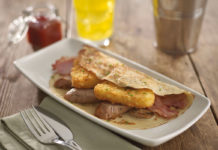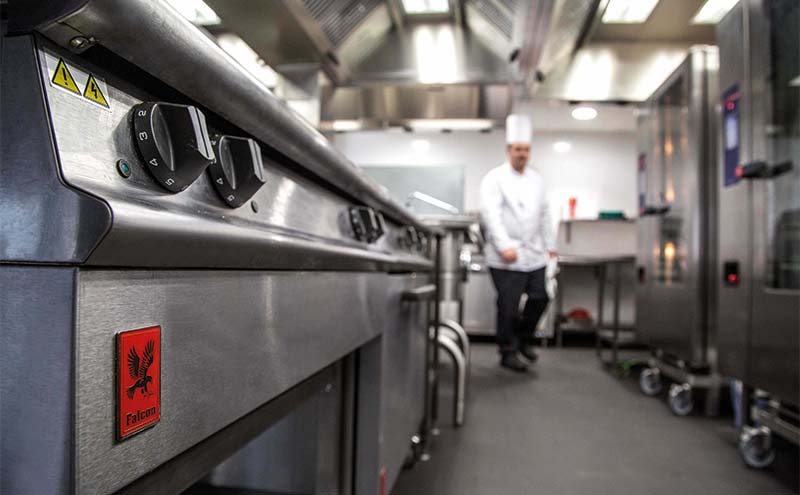Using the right products can have a major impact, say catering equipment firms

NEW trends pop up seemingly every other month in the on-trade, especially when it comes to food. But while many culinary trends will likely come and go, one thing that appears to be here for the foreseeable future is the growing appetite for healthier food.
And chefs in the licensed trade are on the front lines of the healthier eating movement, according to catering equipment firms.
Kenan Koymen of Valentine Equipment said chefs and general kitchen staff “have a part to play in the healthy fried food phenomenon”.
“At the end of cooking, a 20 to 30 second draining phase should be factored into the process,” said Koymen.
“This will allow any unwanted or excess oil to drain back into the pan, and reduce the overall amount of oil consumed by the diners.”
The type of oil used in the cooking is also an important consideration.
“Chefs should stay away from purchasing oils that are saturated, [such as] coconut oil, palm oil or [those] containing animal fats, because although they are good for frying, they are very bad for your health,” explained Tina Carter of catering equipment firm Brakes.
Trans fats, known as hydrogenated oils, should also be avoided, according to Carter, who said that while they may be “very good for frying, with an unrivalled lifespan, [they] are very bad for health and should be avoided”.
Mono unsaturated oils, such as olive oil and canola oil, while slightly less harmful to health, “are not good for frying as they leave a taste on the product”, according to Carter.
Instead, she reckons chefs “should be looking to purchase polyunsaturated oils (corn oil, sunflower oil, rapeseed oil) as these are good for frying with little taste transfer and are less harmful to health”.
Chefs and kitchen staff have a part to play in the healthy fried food phenomenon.
However, as polyunsaturated oils are often ‘mixed oils’ which contain quantities of each, Carter stressed that chefs must check the content level before purchasing.
And it’s essential the oil itself is of the highest quality, according to Shaune Hall of Falcon Foodservice Equipment.
He said: “The old adage of you get back what you put in is especially true in frying.
“It’s essential to use good quality oils and to skim, filter and refresh oil regularly to remove any debris or impurities.”
Efficiency in the way oil is dealt with can also have an impact on an outlet’s bottom line, according to Hall.
Describing oil as the biggest cost during the lifetime of a fryer, he said “big savings can be made by better management and filtration of oil”.
“To avoid unnecessary oxidation and oil degradation, operators should keep the lid on the fryer when it’s not in use for long periods, for example overnight,” he said.
“This also stops dust and other debris getting into the oil (ensure the oil is cool before covering).”
Integrated filtration systems have also become popular, said Hall, as they “maintain the integrity and quality of the oil for longer – saving money and staff time, whilst ensuring the fried food tastes at its best”.























